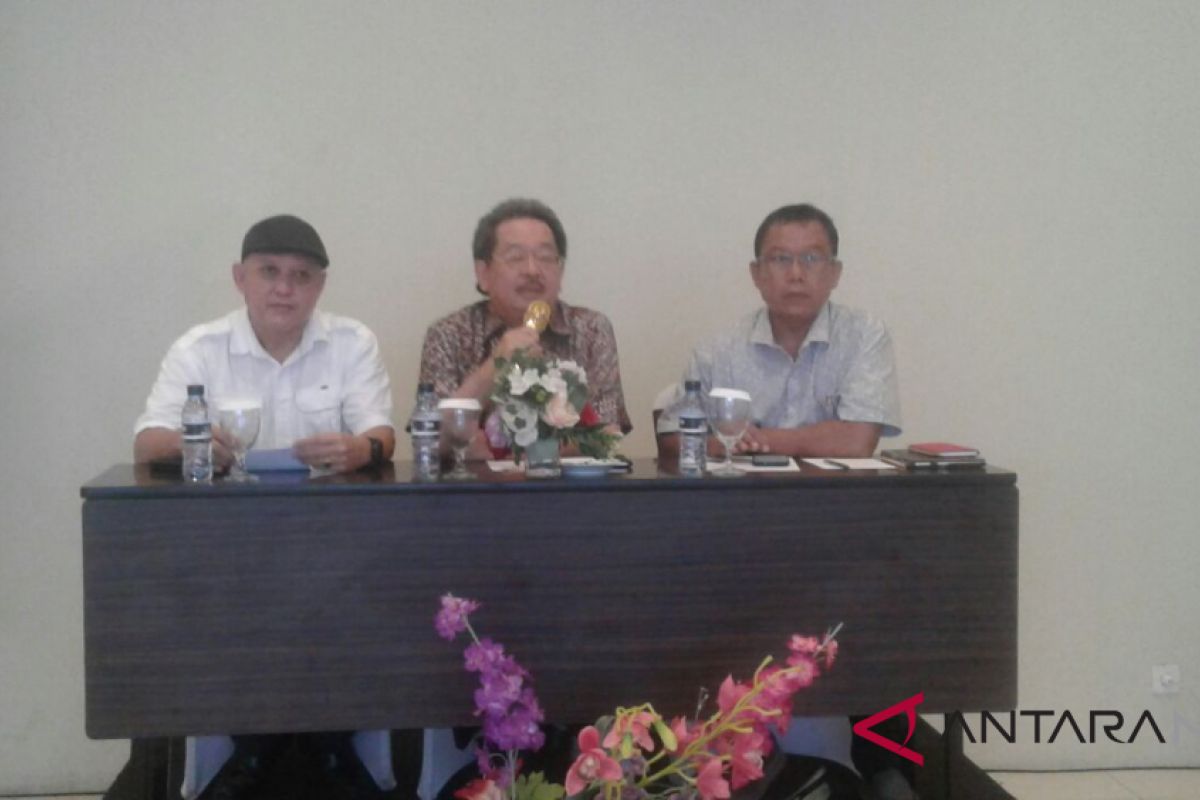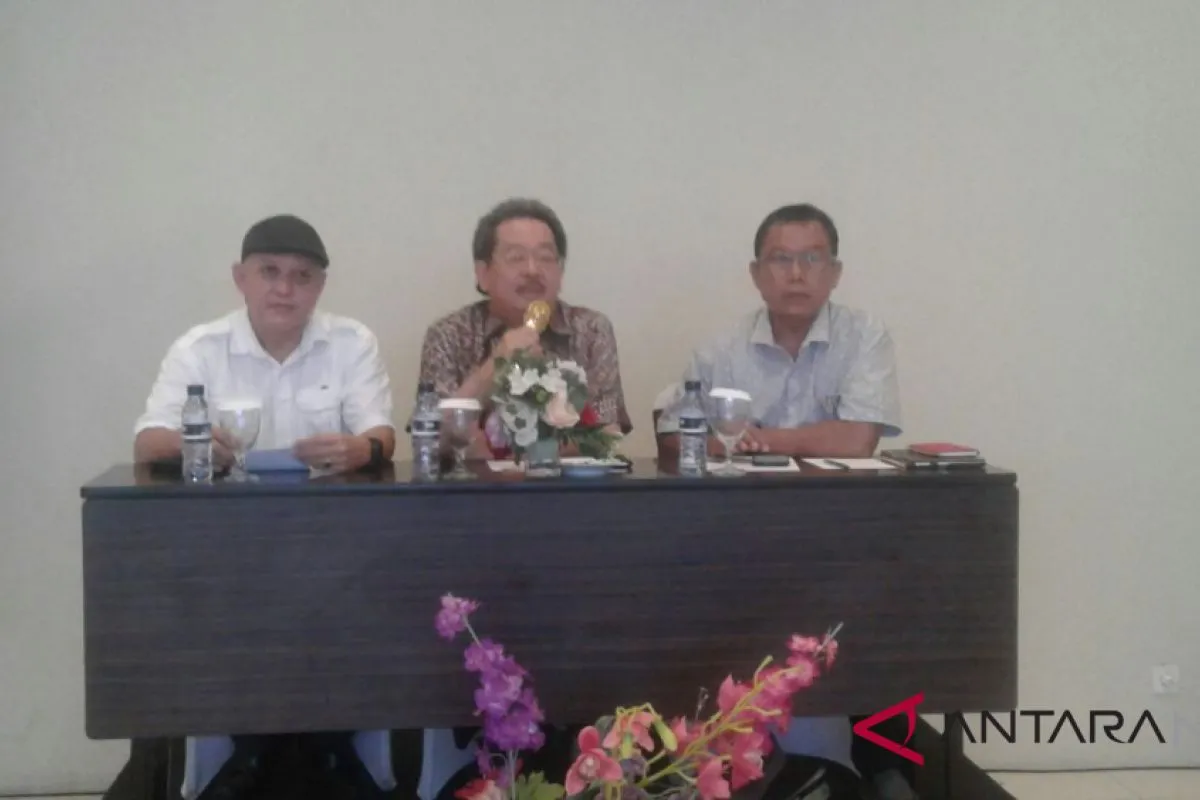Kupang, E Nusa Tenggara (AntaraNews NTT) - PT Puncak Keemasan Garam Dunia (PKGD) will invest around Rp1.8 trillion to build thousands of hectares of salt ponds in the district of Kupang, East Nusa Tenggara (NTT).
The company has acquired 3,720 hectares of land from PT Pangung Guna Ganda Semesta (PGGS) in the district to be converted into salt farm.
Leader of PT. Puncak Keemasan Garam Dunia, Jiwan Adrian, said here on Friday (6/4) the land was acquired last year. The land had been idle for 26 years as PT Pangung Guna Ganda Semesta had no fund to develop it.
The land is potential for salt farming to produce industrial salt, Jiwan said. He said PT PKGD plans to build salt processing plant with an annual capacity of 310.900 tons.
"The climate in the regency of Kupang is favorable for salt farming that the production capacity could be expanded to 400,000 tons a year by optimizing the use of the 3,720 hectares of land," Jiwan said.
He said his company also plans to build a power generating plant and a desalination facility to process the sea water into fresh water needed in the salt washing process.
"We also plan to build a pier to facilitate transportation of salt production to other areas," he said. Earlier salt refining company PT. Garam Indo Nasional said it will build a salt processing plant in the same district.
President Director PT Garam Indo Nasional Hendra Wijaya said the company already has two units of 400 hectares of salt farms in two separate locations in the district -- in the sub-districts of Sulamu and Kupang Tengah .
Hendra said the factory would be built after production of raw salt from the two ponds have been stable and could be relied to to feed the refinery. Therefore, currently PT. Garam Indo Nasional is concentrating on production of raw salt and providing a number of salt farming facilities.
"We have just started the process of production. We could yet estimate the production this year. Normally we could see the production capacity only in the third year," he said.
He said PT. Garam Indo Nasional hopes to produce 40,000 - 50,000 tons of raw salt from the two location a year. He said he was optimistic the target could be achieved as the locations of the salt farms are highly potential.
He said he was not worried about the marketing as the salt from the regency of Kupang is superior in quality compared with salt from other areas in the country, as the sea water in that district is relatively clean.
When PT. Garam Indo Nasional has built the refinery , the regency of Kupang would be the largest producer of refined salt in the country. Currently the country`s largest producer of salt is Madura of East Java.
Meanwhile, salt farmers in the district of Probolinggo, East Java, hope to increase their salt production and improve the quality by using the media of geoisolator. Many salt farmers in Probolinggi still use the conventional system of crystallization with ground media.
Chairman of the Association of salt farmers of Probolinggo Buhar said the farmers would improve the quality of their salt by using the media of geoisolator instead of ground media for the process of crystallization.
Buhar said there are three types of salt in quality - the highest with NaCl content of more than 97 percent for industry, and one with an NaCl content of 94.7 to 97 percent. The third in quality has an NaCl content of less than 94.7 percent used mainly for salting fish.
Most of the salt produced by farmers in the district of Probolinggo is the second in quality mostly for human consumption. Coordinating Minister for Maritime Affairs Luhut Binsar Panjaitan said the country has been self efficient in salt supply for human consumption.
Imports are needed only for industrial salt, but even imports of industrial salt might be no longer needed as we are now building salt refining industry.
The company has acquired 3,720 hectares of land from PT Pangung Guna Ganda Semesta (PGGS) in the district to be converted into salt farm.
Leader of PT. Puncak Keemasan Garam Dunia, Jiwan Adrian, said here on Friday (6/4) the land was acquired last year. The land had been idle for 26 years as PT Pangung Guna Ganda Semesta had no fund to develop it.
The land is potential for salt farming to produce industrial salt, Jiwan said. He said PT PKGD plans to build salt processing plant with an annual capacity of 310.900 tons.
"The climate in the regency of Kupang is favorable for salt farming that the production capacity could be expanded to 400,000 tons a year by optimizing the use of the 3,720 hectares of land," Jiwan said.
He said his company also plans to build a power generating plant and a desalination facility to process the sea water into fresh water needed in the salt washing process.
"We also plan to build a pier to facilitate transportation of salt production to other areas," he said. Earlier salt refining company PT. Garam Indo Nasional said it will build a salt processing plant in the same district.
President Director PT Garam Indo Nasional Hendra Wijaya said the company already has two units of 400 hectares of salt farms in two separate locations in the district -- in the sub-districts of Sulamu and Kupang Tengah .
Hendra said the factory would be built after production of raw salt from the two ponds have been stable and could be relied to to feed the refinery. Therefore, currently PT. Garam Indo Nasional is concentrating on production of raw salt and providing a number of salt farming facilities.
"We have just started the process of production. We could yet estimate the production this year. Normally we could see the production capacity only in the third year," he said.
He said PT. Garam Indo Nasional hopes to produce 40,000 - 50,000 tons of raw salt from the two location a year. He said he was optimistic the target could be achieved as the locations of the salt farms are highly potential.
He said he was not worried about the marketing as the salt from the regency of Kupang is superior in quality compared with salt from other areas in the country, as the sea water in that district is relatively clean.
When PT. Garam Indo Nasional has built the refinery , the regency of Kupang would be the largest producer of refined salt in the country. Currently the country`s largest producer of salt is Madura of East Java.
Meanwhile, salt farmers in the district of Probolinggo, East Java, hope to increase their salt production and improve the quality by using the media of geoisolator. Many salt farmers in Probolinggi still use the conventional system of crystallization with ground media.
Chairman of the Association of salt farmers of Probolinggo Buhar said the farmers would improve the quality of their salt by using the media of geoisolator instead of ground media for the process of crystallization.
Buhar said there are three types of salt in quality - the highest with NaCl content of more than 97 percent for industry, and one with an NaCl content of 94.7 to 97 percent. The third in quality has an NaCl content of less than 94.7 percent used mainly for salting fish.
Most of the salt produced by farmers in the district of Probolinggo is the second in quality mostly for human consumption. Coordinating Minister for Maritime Affairs Luhut Binsar Panjaitan said the country has been self efficient in salt supply for human consumption.
Imports are needed only for industrial salt, but even imports of industrial salt might be no longer needed as we are now building salt refining industry.


